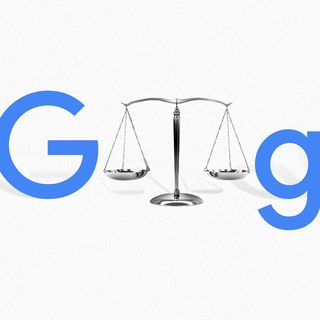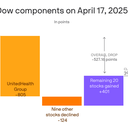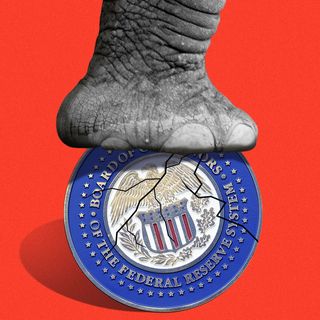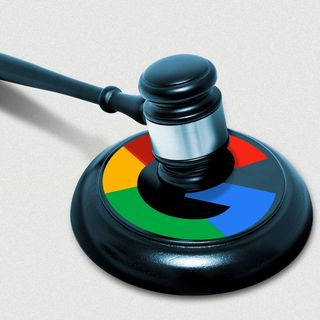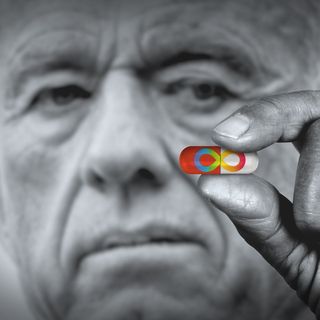Google tries to reassure employees after antitrust ruling
Google wants employees to focus on their work and not fret about the company's loss of "parts of" its online advertising monopoly case, it said in a memo to employees Thursday.
Why it matters: The court's ruling, which Google said it would appeal, could fundamentally reshape the giant's advertising business, depending on the remedies, or penalties, the judge determines.
- Advertising represents the vast majority of Google's revenue. It fuels the company's ability to invest in new technologies, like AI and cloud servers.
Zoom in: In a note to staff, Google VP of regulatory affairs Lee-Anne Mulholland said it's important for employees to"continue to focus on our users and customers by building amazing products that help people around the world."
- Google, she noted, plans to appeal the ruling, arguing it "incorrectly suggests a company like ours has a legal obligation to do business with competitors."
- "This is contrary to past Supreme Court decisions," she asserted.
Between the lines: Mulholland also sought to clarify the outcome of the case by noting that the court delivered a mixed ruling.
- "It rejected key parts of the DOJ's case," she said. "The court found our advertiser tools don't harm competition and our acquisitions of DoubleClick and AdMeld were not anticompetitive. But it agreed with the DOJ's claims about one of our publisher tools. In other words, we won half, lost the other half."
Go deeper: Here's the full text of Google's memo:
Today, a U.S. district court issued a mixed decision in our advertising technology case with the U.S. Department of Justice (DOJ). We asked Lee-Anne Mulholland, VP of Regulatory Affairs, for her thoughts.
Give us an overview of the court's decision today. The court delivered a mixed ruling in the DOJ's lawsuit focused on some of our ad tech. It rejected key parts of the DOJ's case: The court found our advertiser tools don't harm competition and our acquisitions of DoubleClick and AdMeld were not anticompetitive. But it agreed with the DOJ's claims about one of our publisher tools. In other words, we won half, lost the other half.
For those unfamiliar, what's the focus of this case? This case is focused on the tools we provide to advertisers and publishers for third-party display advertising on the web. While these tools are valuable for those customers, they represent a narrow part of our advertising business — separate from Search and YouTube ads. Specifically, it looked at whether some of our advertising technology — tools that connect advertisers (like retailers) and ad sellers (typically website owners) — violated antitrust law; as well as whether our acquisitions in this space were anticompetitive.
What are the next steps? On this case, there is a ways to go; this is definitely not the final word. We will next go to trial to decide the remedies in this case, and then we will appeal the decision. We believe we're strongly positioned to appeal based on established Supreme Court precedent, the facts of our case, and the findings of the court today:
- The ruling doesn't align with how the Supreme Court has previously viewed multi-sided markets like ours, which involve advertisers, publishers, platforms, and users.
- The ruling incorrectly suggests a company like ours has a legal obligation to do business with competitors. This is contrary to past Supreme Court decisions.
- The court recognized that our advertising tools operate in a competitive market, alongside major players in social media and beyond.
- The ruling found that our acquisitions in this space (DoubleClick and Admeld) did not harm competition.
- Publishers have tons of options and they choose Google because our tools are simple, affordable, and effective.
Is there anything else you want Googlers to know? There's been a lot of interest by regulators in our ad tech products around the world for many, many years so this scrutiny isn't new! We've long invested in ad tech because it goes back to our mission of making information universally accessible and useful. Ad tech helps online publishers, content creators, and bloggers make money—which in turn keeps the internet free and open to use for all of us.
We're deeply committed to providing solutions to a wide array of publishers and advertisers in a highly competitive sector. The Regulatory Affairs team will keep working to challenge this case through the appeals process. It's important for Googlers to continue to focus on our users and customers by building amazing products that help people around the world.


